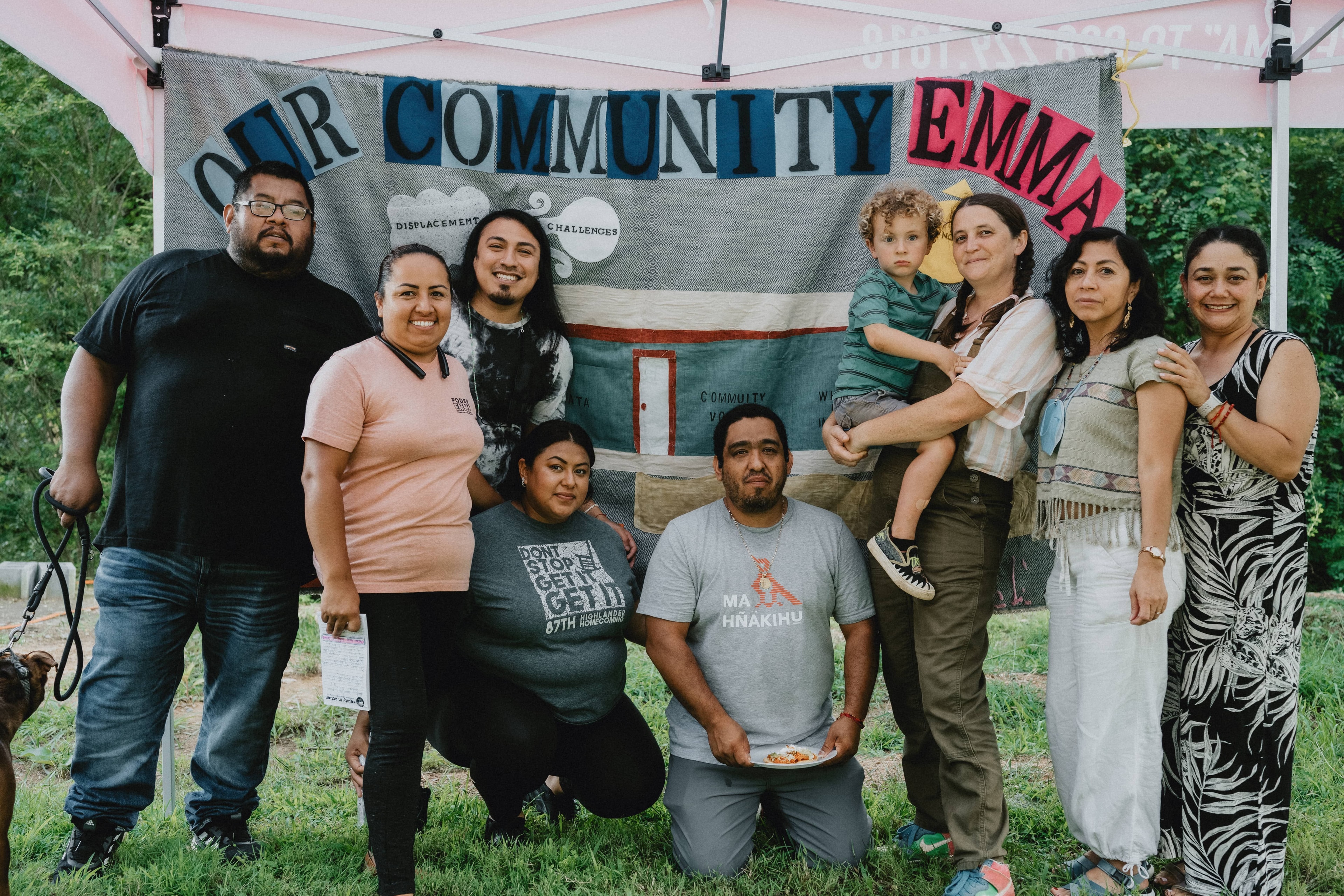WORKPLACE DEMOCRACY
Why ownership and control matter
Workers from the Sustainergy worker cooperative in Cincinnati on the job
At Seed Commons, we believe that if you truly want an inclusive and equitable economy, you have to go to the root of where economic power comes from: ownership.
That’s why a key focus of our lending and investment is on worker cooperatives—businesses where the workers who create all the value share equally in the ownership of the firm, and where that ownership translates to democratic control, on a one-worker, one-vote basis.
These kind of democratic workplaces are on the rise in the United States. But they need non-extractive finance to scale and multiply. Workers, as a rule, generally don’t have access to investment capital—and the status quo financial system is set up, intentionally or not, to keep it that way, even though workers are very often also the people who know their industry best and who truly understand what kind of business they and their communities need to thrive. A financial system designed around extraction, that insists on capital’s place in the driver’s seat of the economy, is simply not going to be willing or even able to move resources into these kinds of worker-led opportunities to create sustainable businesses that serve their communities.
That’s where Seed Commons comes in. We understand the unique possibilities that democratic workplaces offer for building power in underserved, marginalized, and excluded communities—and the unique barriers they face trying to access capital on terms that don’t foreclose these possibilities. Through our network of peer loan funds and the relationships of trust it fosters, we make investments that are accessible to workers who want to take democratic control of their economic future. These investments come with offers of support and technical assistance, instead of demanding the right to dictate business decisions and extract profit.
Every peer fund’s strategy is different—some are focused on incubating new worker co-ops as start-up businesses, often paired with deep work in community to help historically excluded workers understand how cooperatives can build economic power. Some have a sectoral strategy, building local portfolios that create a community of practice and opportunities for cooperative integration in and along supply chains. Some are working on conversions—giving business owners the possibility of a graceful exit that puts the next chapter of the business they started in the hands of their workers, or helping workers stand up and organize for that chance. Others are working on acquisitions—actively seeking out good candidates for worker ownership and leveraging investment dollars to build that portfolio. And still others are building democratically controlled economic institutions beyond the workplace, that create affordable housing or community infrastructure. And most are pursuing a mix of these strategies—but all with an unwavering commitment to democracy and nonextraction.
Ultimately, by creating financial infrastructure capable of shifting economic power and resources into democratic workplaces, we’re not just disrupting the traditional lopsided relationship between capital and labor one business at a time. We are also unlocking the patterns needed for how a financial system should work when it is part of a truly democratic economy, in which investment is designed to help communities secure what they need to thrive, not to maximize extractive profit. As our network grows and scales, we are working with our peer members to make this systemic vision a reality—building up from worker cooperatives towards other forms and higher levels of non-extractive community ownership. We’re especially excited to support projects that are putting larger and larger amounts of land and housing under democratic control—with contemporary capitalist speculation, exploitation, and displacement accelerating the harm done to so many communities, it’s urgent that we scale up non-extractive alternatives.




